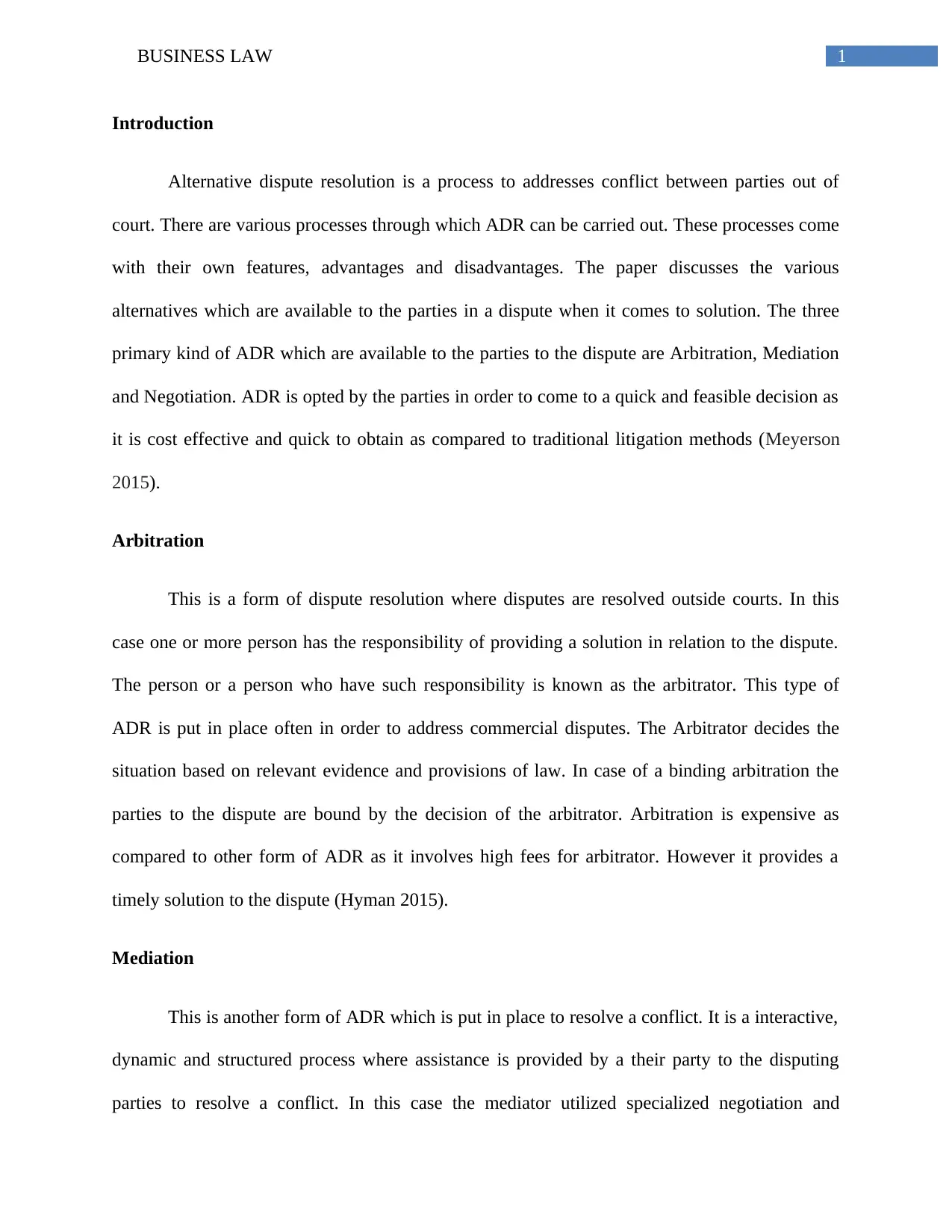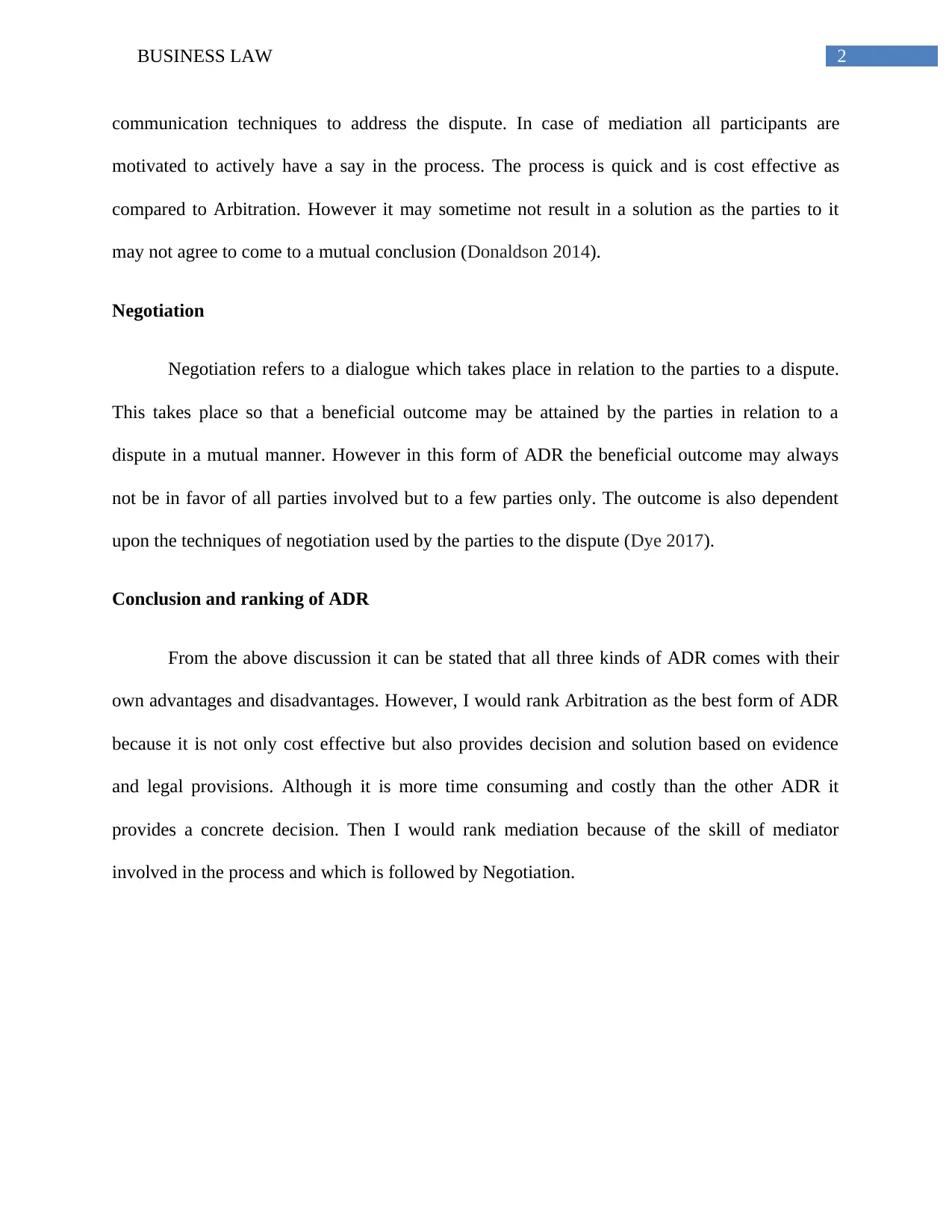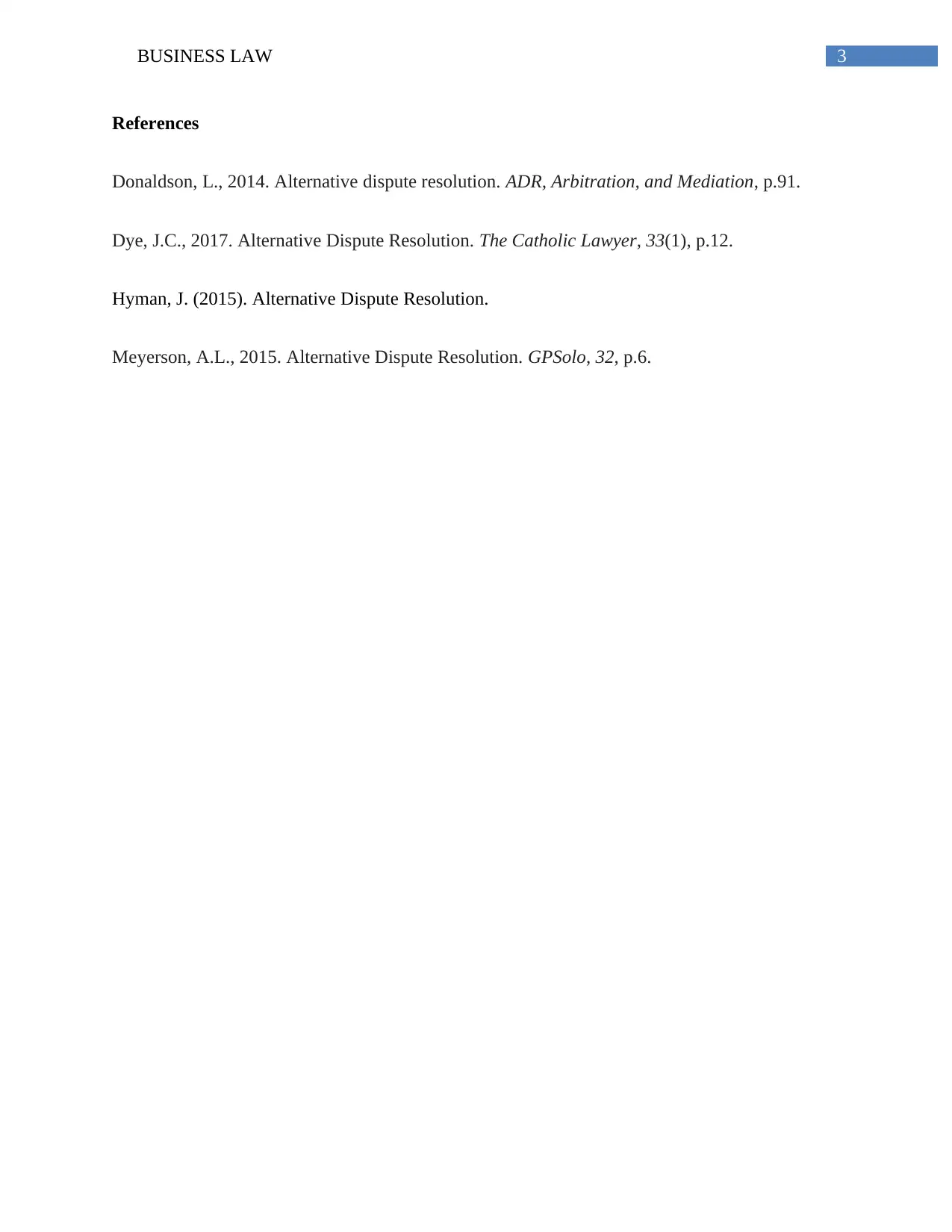Business Law: Analysis of Alternative Dispute Resolution Methods
VerifiedAdded on 2023/06/15
|4
|652
|154
Essay
AI Summary
This essay provides an overview of alternative dispute resolution (ADR) methods in business law, focusing on arbitration, mediation, and negotiation. It discusses the features, advantages, and disadvantages of each method, highlighting their role in resolving disputes outside of traditional court proceedings. The essay emphasizes the cost-effectiveness and speed of ADR compared to litigation. Arbitration is presented as a method involving a neutral arbitrator who makes a binding decision based on evidence and legal provisions. Mediation is described as a dynamic process facilitated by a third-party mediator to help disputing parties reach a mutual agreement. Negotiation is defined as a dialogue between parties to achieve a beneficial outcome, though not always favorable to all. The essay concludes by ranking arbitration as the most effective ADR method due to its evidence-based and legally sound decisions, followed by mediation and negotiation.
1 out of 4











![[object Object]](/_next/static/media/star-bottom.7253800d.svg)